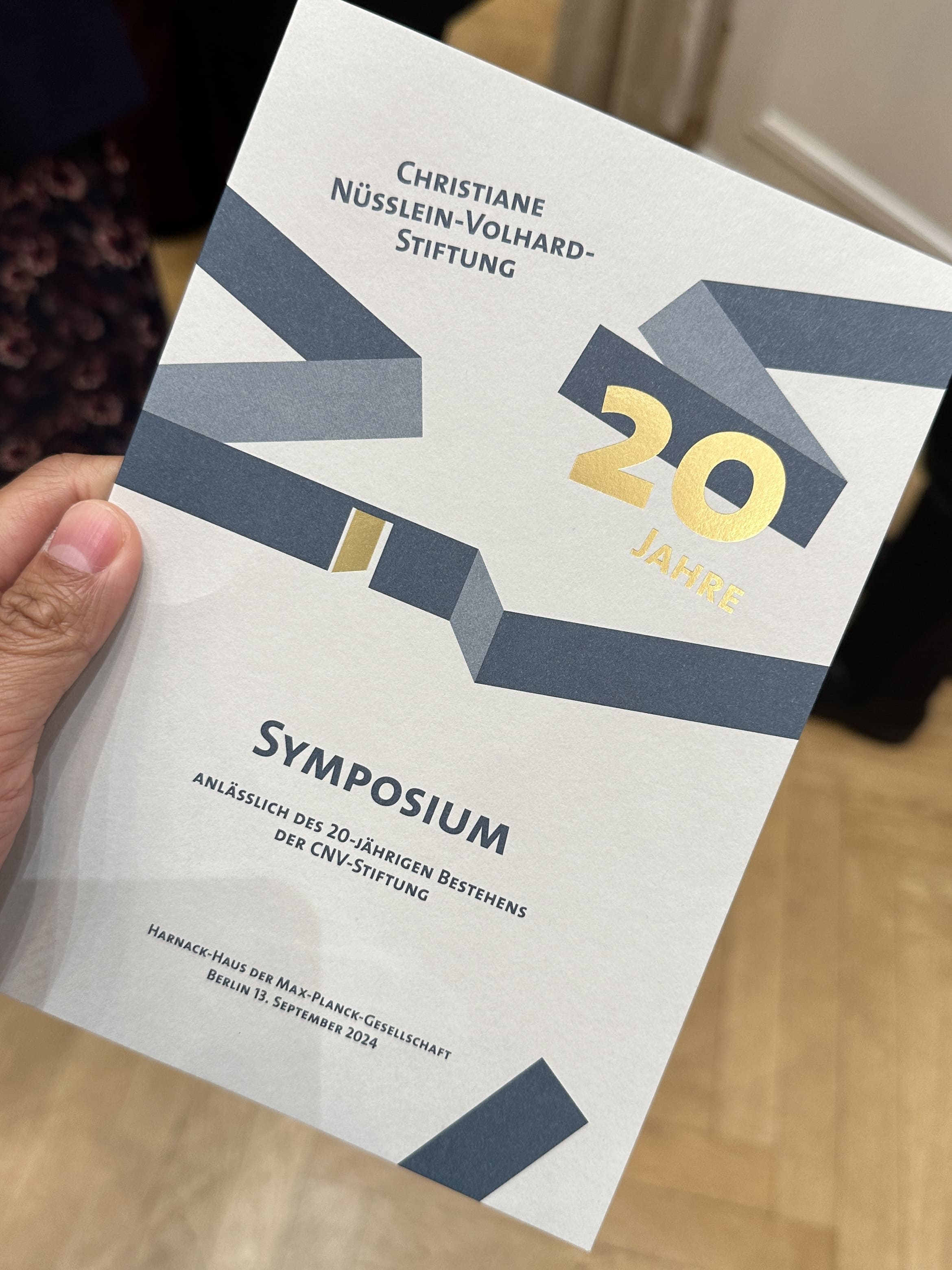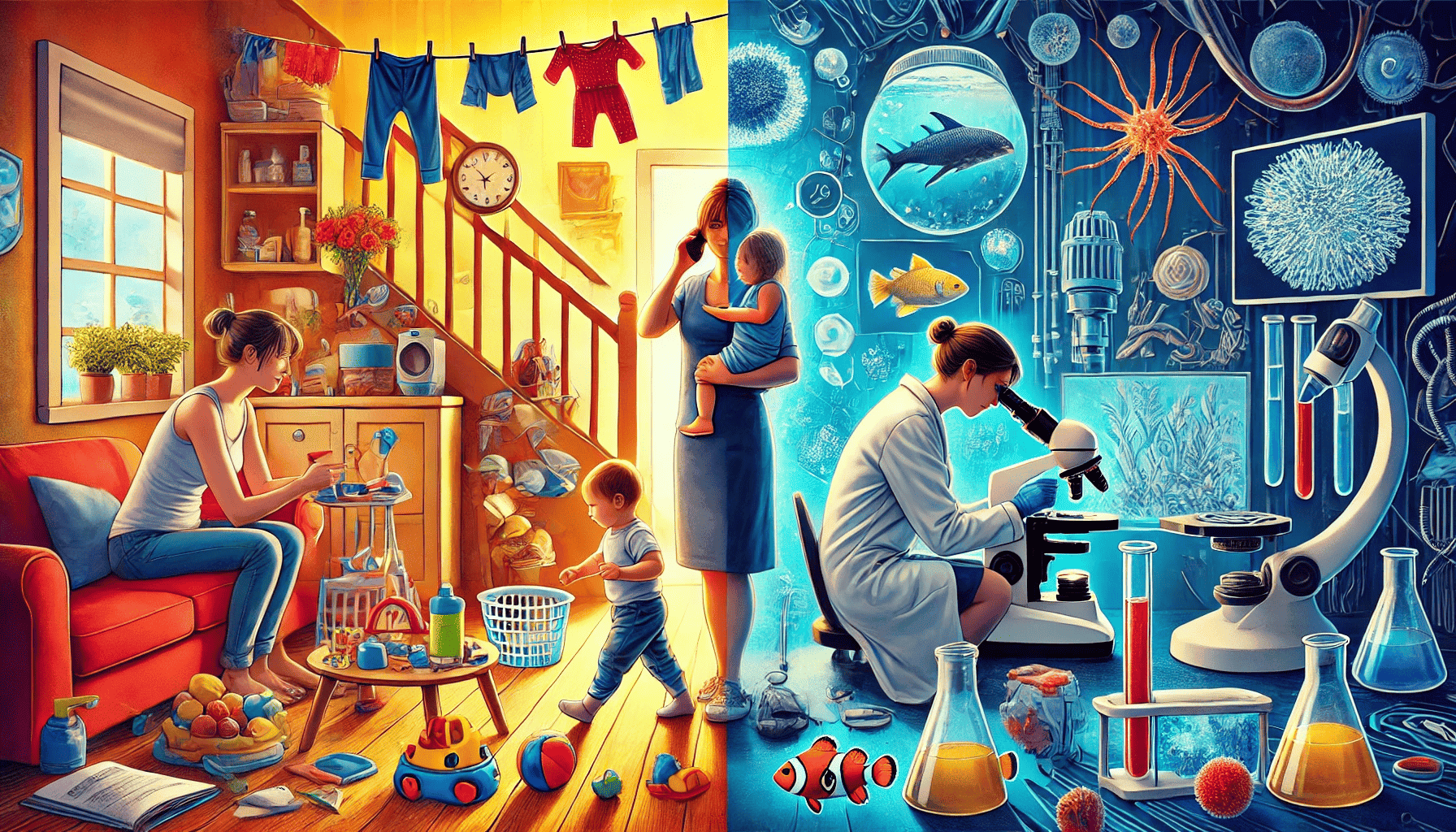Women bring immense potential to science, yet they remain underrepresented in top academic and research roles. In 2022, over 52.3% of all students enrolled at German universities were women, and women earned more than 46% of doctorate degrees. But when it comes to university professors, this number drops dramatically to just 28% (Source: German Federal Statistical Office, 2022). The reason? Often, it comes down to starting a family – a responsibility that, for biological reasons, falls more heavily on women. Surprise!
Side note: In the course of evolution, pregnancy has evolved independently 150 times but it’s only the family of seahorses and pipefish (Syngnathidae) that exhibit male pregnancy. If you want to know more, head to our previous blog article written by my dear colleague Ayla.
Now, enough stats! I’m Kim, a final-year PhD student in marine evolutionary biology at Kiel University and a proud mother of a 2.5 years old toddler. You might remember me from last summer’s blog post where I shared my journey of balancing parenthood and academia. Today I want to give you a glimpse into the life of PhD parents and highlight the Christiane Nüsslein-Volhard-Foundation (CNV-Foundation), a fantastic initiative supporting mothers in science. My partner and I, both in the final phase of our PhDs in marine sciences, have divided our parenting and household duties equally – managing everything from daycare drop-offs to grocery runs and free time activities. It’s a lot, but with a great kindergarten and an amazing network of friends, we make it work.
Of course, real life isn’t as smooth as it might seem. There are plenty of challenges to raising a toddler while finishing a PhD – like keeping up with cleaning or managing solo when one of us is away for work. Shortly after my daughter was born, I discovered the Christiane Nüsslein-Volhard-Foundation, a support network for mothers in science, founded by Nobel laureate Christiane Nüsslein-Volhard with the help of significant women in science like Maria Leptin, president of the European Research Council, and Barbara Bludau, former secretary general of the Max Planck Society.
From 1901 to 2023, the Nobel Prize has been awarded to 894 men, but only to 64 women. Christiane Nüsslein-Volhard is one of them, and founder of the CNV-Foundation.
The CNV-Foundation addresses the struggle many female scientists face: balancing family life with independent research. They offer financial support for household help and additional childcare, making it easier to manage both worlds. After a competitive application process, including an in-person interview, I was selected as one of the 16 stipend recipients for 2024. Thanks to their support, we now have a cleaning aid and a babysitter, which has been a huge relief.
Last month, we gathered in Berlin to celebrate the 20th anniversary of the CNV Foundation. It was an inspiring event, not focused on the usual complaints of PhD life, but on empowering women from all career stages – PhD researchers, post-docs, and professors – who believe that having a scientific career shouldn’t stop us from starting a family. Even Angela Merkel, former chancellor of Germany and a doctorate holder in physics, gave a speech encouraging us to keep pushing forward, reminding us that we are the future of science in Germany.

The support from the Christiane Nüsslein-Volhard-Foundation has made a significant difference in helping me balance academic work and family life. If you’re a mother working in the experimental natural sciences (as a PhD researcher or post-doc) at a German university, I encourage you to consider applying for the next round of funding, open now until 30 November. While there’s always an element of chance with applications, here are a few tips:
- Clearly and concisely present the novelty of your research in a scientifically sound way.
- Carefully select who will write your two letters of recommendation – having leading female scientists as your referees can be particularly valuable.
- If you make it through the online application phase, be prepared for an interview, where you’ll give an oral presentation of your research to the foundation’s board of directors.
The application for the CVN-Foundation scholarship for mothers in science is open until November 30th!
I hope sharing my experience has been helpful, and I wish you all the best in balancing your scientific work and family life. Whether you’re applying for the CNV-Foundation or facing the challenges of academia on your own, I’m sending you lots of support and encouragement on your journey.
Kim Wagner
